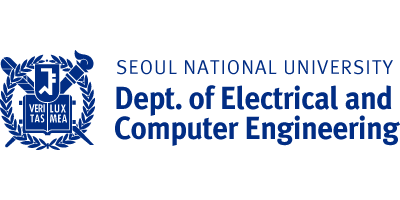Professor Songhwai Oh, chosen as ‘SW Star Lab’ from 4 universities including SNU and KAIST (ZDNet Korea, 20190403)

Ministry of Science and ICT announced on the 3rd that 7 research laboratories from 4 universities including SNU, KAIST, DGIST, and Kyunghee University were chosen as this year’s ‘SW Star Lab’
Out of the seven laboratories, three are from KAIST, two from SNU, and one each from Kyunghee University and DGIST.
‘SW Star Lab’ tries to acquire fundamental technology in the field of 5 major software engineering (Big Data and Database, Intelligent software, Distributed Computing, Algorithms, and User Interface) and nurture software engineers with masters and doctor’s degree to have global competence.
In particular, SW Star Lab aims for extensive use of the research achievements by choosing to make the research results as an open source, in which the copyright holder reveals the source codes to the public for them to use, copy, and modify the results. Selected laboratories will receive a long-term support for as long as 8 years (4+4 years) to develop fundamental and key software technology. Annual financial grant is 300 million won.
By making it mandatory for masters and doctorate researchers to take up more than 50% out of the total participating researchers, the project aims to try develop key technologies and produce human resources at the same time.
In the first year of this program, 2015, 10 research laboratories were selected. Afterwards, six each in 2017 and 2018 were chosen. Including the 7 laboratories this year, the total becomes 29.
According to the Ministry of Science and ICT, ‘SW Starlab’ achieved globally acknowledged results in the fields of key technologies of the fourth industrial revolution such as Artificial Intelligence and Big Data.
For the four years since 2015, a total of 163 top intellectuals were nurtured including 97 masters and 46 PhD graduates in the 5 major SW fields. In particular, the research team of Byungtak Jang of SNU developed an integrated framework of cognition, action, and learning based on machine learning technology using artificial intelligence. By applying this to robots, they won the International RoboCup in 2017 for the first time as a Korean team.
Also, the team developed a deep learning model for conversational artificial intelligence based on visual cognition and became the runner up winner of the 2018 Visual Question Answering Challenge which validates the feasibility of artificial intelligence. Kyungwon No, director general of software in Ministry of Science and ICT, expects the selected SW Star Lab to secure competence in fundamental and core software technology and foster top software intellectuals. He revealed that continuous support will be expanded to make this possible.
Source: http://ee.snu.ac.kr/community/news?bm=v&bbsidx=48674
Translated by Kyungjin Lee, English Editor of Department of Electrical and Computer Engineering, jin11542@snu.ac.kr


